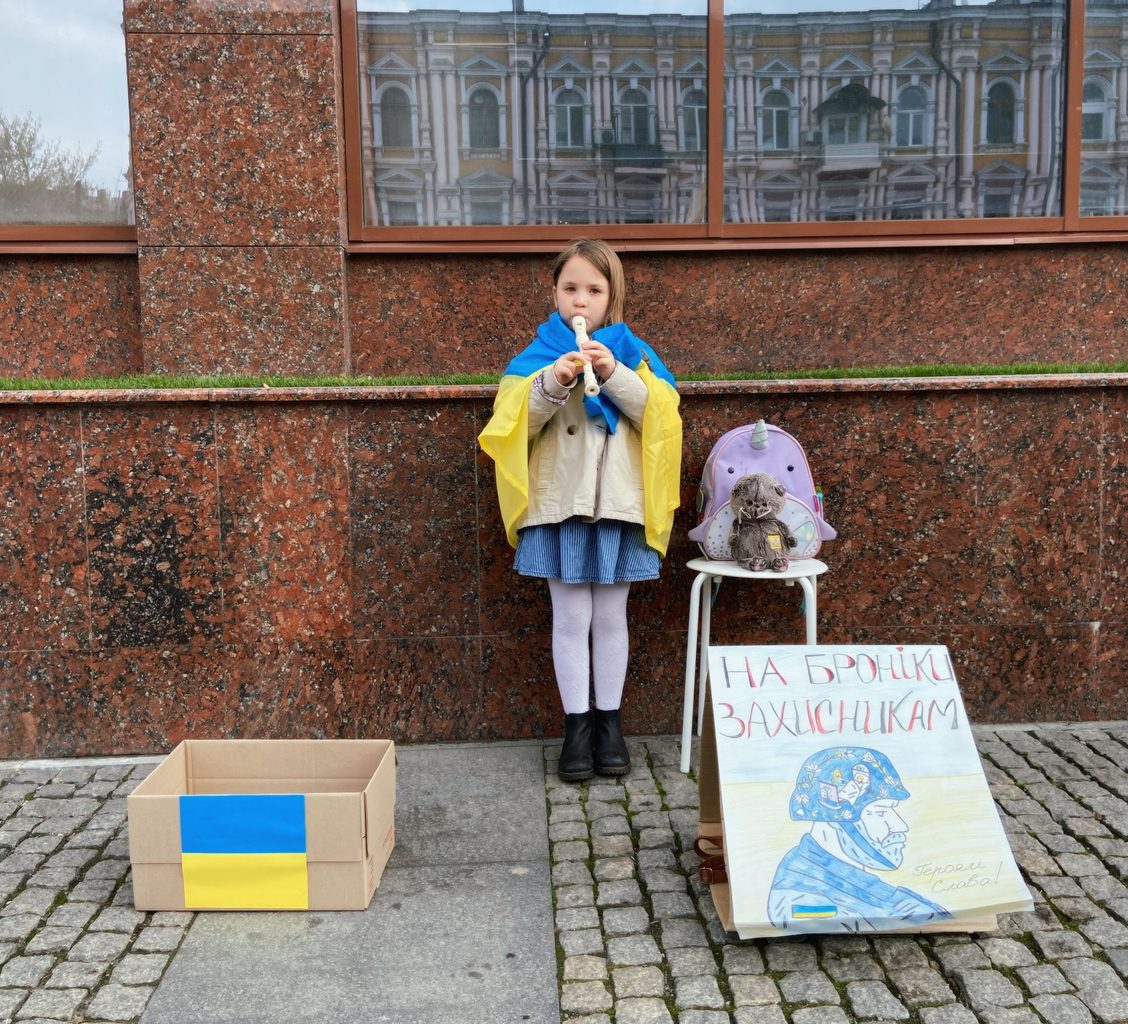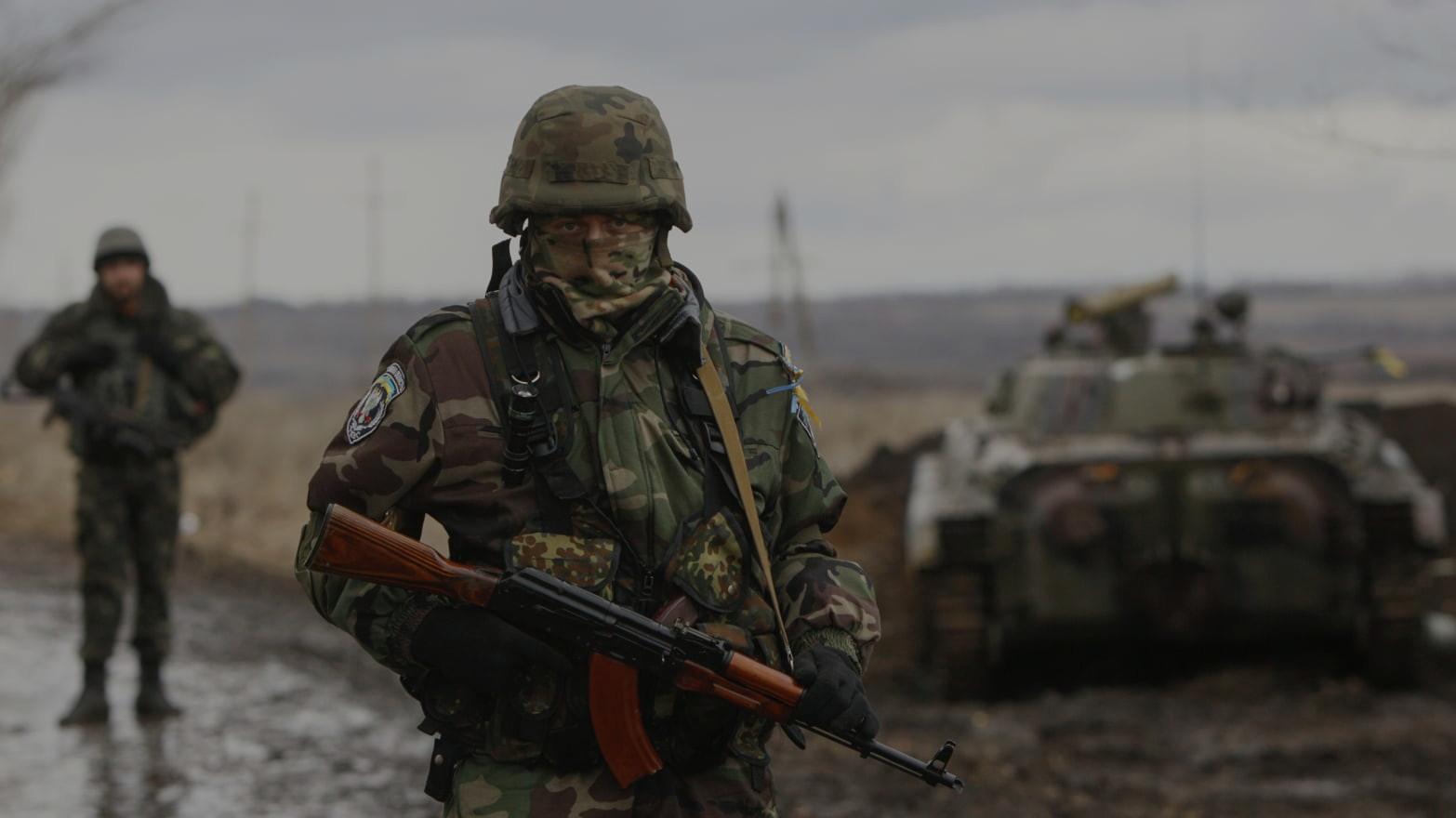Ukraine Daily
Thursday, July 21
Want to get the news faster? Follow our website: kyivindependent.com.
Russia’s war against Ukraine

Solomiia Reut raises money for Ukraine’s military by playing the flute in her hometown of Dnipro, Dnipropetrovsk Oblast. (Kseniia Reut)
Dear readers, we recently launched a new newsletter, Belarus Weekly, and you are the first to see it! To receive the Belarus Weekly newsletter in the future, subscribe via this link.
Institute for the Study of War: Russian offensive will likely conclude without seizure of Sloviansk, Bakhmut. The U.S. think tank reported on July 20 that Russian forces may achieve limited territorial gains in Donbas northeast of the E40 highway, but will likely fail to take additional major populated areas like Sloviansk and Bakhmut. The ISW also says Russian proxies in Ukraine may use recent Ukrainian “high-precision strikes” against Russian targets to set conditions for mass deportations of Ukrainians to Russia and Russian-occupied territory.
Bloomberg: Russia might face first Hague war crime case this year. According to Bloomberg’s unnamed sources, the International Criminal Court aims to move forward with a case over Russian war crimes in Ukraine closer to winter. Since Feb. 24, the UN recorded that at least 5,024 civilians have been killed, including over 300 children, but the agency expects the actual figures to be considerably higher.
Intelligence: Beirut port rejects Russian ships with stolen Ukrainian grain. According to Ukraine’s Defense Ministry Intelligence Directorate, on July 13, the Russian dry cargo ships Matros Koshka and Matros Pozhynich with 54 tons of Ukrainian grain planned to enter the port of Beirut, but the Lebanese authorities prohibited the ships from unloading there, so the they were redirected to the ports of Latakia and Tartus in Syria. From there, Ukrainian grain will be delivered to Middle East and North Africa, according to the intelligence.
Putin names ‘conditions’ to resume grain exports from Ukraine. Russia is ready to allow the export of Ukrainian grain if all sanctions related to the export of Russian grain are removed, Russian dictator Vladimir Putin said in Tehran, as quoted by Le Monde. Despite the fact that the countries that imposed sanctions against Russia due to the invasion of Ukraine have repeatedly emphasized that sanctions don’t apply to food supplies from Russia, the Kremlin claims that the sanctions affect shipping insurance, payments, and access to European ports.
UK Intelligence: Antonivskiy Bridge key vulnerability for Russian troops in Kherson. The latest U.K. defense intelligence update said Russian troops in occupied Kherson reported on July 19 that the bridge had been hit by Ukrainian forces, but that it is highly likely it is still usable. It is one of the two roads crossing the Dnipro River Russia can use to supply or withdraw its troops. The report also states that Ukrainian forces are holding the line in Donbas, while Russia continues to make minimal gains.
Governor: Mykolaiv to be temporarily closed to arrest Russian collaborators. Mykolaiv Oblast Governor Vitaliy Kim said local authorities are currently processing data about the alleged activities of collaborators and traitors and the city will be closed for one or two days in order to carry out arrests. The operation is planned for a week or two from now, Kim said.
Reuters: Russia threatens Wikipedia for hosting information about Ukraine invasion. Russian state communications regulator Roskomnadzor said that links to Wikipedia about Russia’s war in Ukraine would be accompanied by a disclaimer telling users that the Wikimedia Foundation, Wikipedia’s parent company, had violated Russian law. The foundation is fighting a Russian court decision demanding it remove information about its full-scale invasion of Ukraine.
Institute for the Study of War: Kremlin may use nuclear threats to deter Ukrainian counteroffensive. The U.S. think tank reported on July 19 that Russia may seek to annex temporarily occupied Ukrainian territory, after which it may leverage nuclear threats, citing the ability to use nuclear weapons to defend so-called Russian territory. The ISW also reported that the Kremlin is receiving increasing pressure from Russian war hawks to define Russia’s actions as a war, undergo general mobilization, and expand territorial goals.
General Staff: Russia continues offensive in Donetsk Oblast. Russia is on the offense near the village of Berestove, around 30 kilometers northwest of Bakhmut. The Russian army also conducts an offensive near the Vuhlehirska coal-fueled thermal power plant some 27 kilometers southwest of Bakhmut. On July 20, Russia shelled at least nine settlements in the region.
Read our exclusives here
There are many discrete operations that Ukraine carries out deep into Russian-occupied territories. Among these low-profile operations was the destruction of a Wagner Group base 45 kilometers east of the front line in Russian-occupied Kadiivka in Luhansk Oblast in early June. Read our story here.
Russia’s war in Ukraine is not only killing civilians but defenseless animals as well. Marine biologists and ecologists from countries in the Black Sea region are sounding the alarm, as dolphins die en masse for the fourth month in a row. Read our story here.
The human cost of Russia’s war
Russian shelling kills 3, wounds 1 in Kharkiv. Russian occupying forces hit a bus station in Saltivka, a northern district of the city, killing a man, a woman, and a 13-year-old, according to Kharkiv Oblast Governor Oleh Syniehubov. The rescue operation is underway.
General Staff: Russia lost about 38,750 troops in Ukraine since Feb. 24. Ukraine’s General Staff reported on July 20 that Russia had also lost 1,700 tanks, 3,905 armored fighting vehicles, 856 artillery pieces, 250 multiple launch rocket systems, 167 surface-to-air missiles, 188 helicopters, 113 airplanes, 703 drones, and 15 boats.
International response
EU to provide Ukraine with new 500 million euros military assistance. EU foreign affairs chief Josep Borrell said that with the allocation of the fifth tranche “to further support Ukraine‘s Armed Forces,” the European Union, together with its Western partners, remains “focused and steadfast” in its support for Ukraine.
US to send 4 more HIMARS to Ukraine. US Defense Secretary Lloyd Austin said that the next package of military aid to Ukraine will include four more HIMARS artillery rocket systems, Reuters reported.
Syria breaks diplomatic ties with Ukraine. Syria, Russia’s close ally, has announced on July 20 it is formally breaking diplomatic ties with Ukraine after Kyiv made the similar move on June 29. Ukraine cut ties with Syria after the country said it recognized the Russian-occupied Ukrainian territories in the Donbas as “indepedendent states.”
Ukraine to ask for debt restructuring, postponing repayment for 2 years. The decision, supported by parliament, aims to save currency liquidity in Ukraine and reduce the $5 billion monthly budget deficit. According to Finance Minister Serhiy Marchenko, If the creditors do not agree, Ukraine will continue paying its debts according to the current agreements.
Lithuania to provide Ukraine with more armored personnel carriers, ammunition. Lithuania’s Defense Minister Arvydas Anusauskas said during the meeting of the NATO Coordination Group that Lithuania will provide M113 and M577 tracked armored personnel carriers. The country will also offer to organize training for Ukrainian soldiers, police, and demining specialists.
Ukraine’s First Lady asked US Congress for more weapons, air defense systems. First Lady Olena Zelenska said during her speech that Ukrainians need vital military aid to “have the right to wake up alive” and to defend against Russian airstrikes that “kill babies in strollers.”
In other news
Reuters: Nord Stream 1 to resume operations at 30% capacity on July 21. According to Federal Network Agency chief Klaus Mueller, Russia’s Gazprom renominated gas flows at around 530 gigawatts hour per day following the pipeline’s maintenance period. “It’s better than nothing but of course not what is contractually agreed,” Mueller reportedly said in an interview. Last month, Gazprom cut the pipeline’s capacity to 40%, blaming Canadian sanctions. According to Reuters, Russian dictator Vladimir Putin said on July 20 that the pipeline’s capacity could be limited further due to slow progress in equipment servicing.
Bloomberg: EU to propose 15% cut in natural gas use. As of next month, the EU is set to propose a voluntary 15% cut in natural gas use by its member states amid fears that Russia will halt energy supplies. The plan will also reportedly include a “mandatory trigger” should conditions decline and voluntary cuts be deemed ineffective.
Want to get the news faster? Follow our website: kyivindependent.com.
Today’s Ukraine Daily was brought to you by Alexander Query, Olga Rudenko, Liliane Bivings, Natalia Datskevych, Oleksiy Sorokin, Teah Pelechaty, Anastasiya Gordiychuk, and Alisa Soboleva.
If you’re enjoying this newsletter, consider becoming our patron on Patreon or donating via GoFundMe. Start supporting independent journalism today.



Comments
No comments yet. Be the first to react!